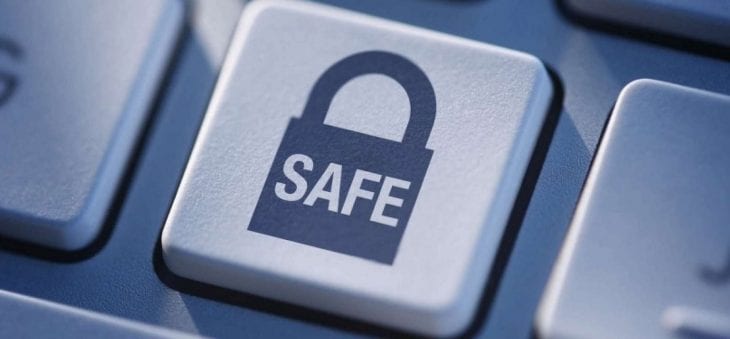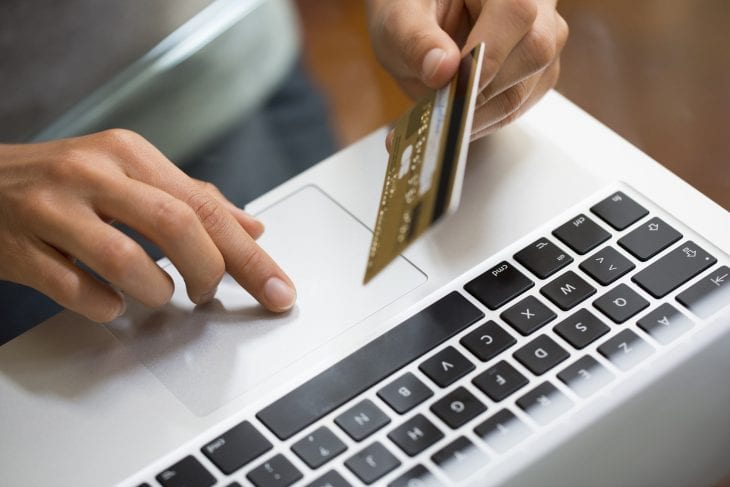Brick-and-mortar shopping has become a thing of the past. Many adults attest to shopping online at least once a month while others say they make almost all their purchases digitally.
This rise in popularity has led to major security concerns across the industry. This rise in popularity paired with the ever-increasing internet speeds, which you can test on websites like speedcheck.org, has led to major security concerns across the industry. With more and more people logging into purchasing portals, a new wave of hackers has entered the fray to try and take advantage.
Recent generations seem to be more tech-savvy than the previous ones, leading them to try and protect themselves from these dangers. Unfortunately, many do not go far enough. Using a free VPN or clicking “log out” when finished with a transaction may not stop an attempt to steal your information.
Is it possible to stay safe while shopping via the internet? Of course. It may take a little more work than you might expect, but following a few safety protocols can go a long way toward ensuring your security.

Img source: cybersecurityresources.org
Contents
Do the Simple Things
Many people look at cybersecurity while shopping online as a cumbersome set of tasks. It really can be simple. Taking a few easy precautions, combined with the use of a VPN, can keep you and your information much more secure.
1. Insist on HTTPS
An easy way to remember this is that “S” in “HTTPS” means security. Websites with an URL starting with, “HTTPS” use Secure Sockets Layer encryption. This adds an extra layer of security to your transactions and financial information.
2. Do NOT click here
Phishing is still a popular way to get people to visit phony pages and cough up valuable information to wrongdoers. Always go directly to the site and process your transaction without clicking on any links in the email. Even innocent-looking messages could be counterfeit.
3. Stay up to date
So many people ignore the messages imploring them to update their browser. Aside from improving overall function, these updates often contain security patches and bug fixes. Without them, your browsing could be vulnerable to theft.

Img source: cybersecurityresources.org
4. Change your passwords
It is advice as old as the digital age is, but it still goes unheeded. Create complex passwords and change them every few months. Each login should have its own unique key. There are apps to help with this now, so the excuse of weak memory is no longer valid.
How a VPN Can Help
A virtual private network (VPN) provides one of the only blankets of total security for digital shoppers. A VPN can offer safety to those shopping online that no other tool can.
The VPN creates protective encryption for all the information leaving your device as it travels to the VPN server. Your IP address is altered by the server and provides a different endpoint that cannot be traced back to you. The information returning to your device after passing back through the VPN server is also encrypted.
Most VPN providers offer tiered pricing that can help you find something for your budget. For those who prefer to see what they are getting into before committing long-term, most major VPN providers offer a free trial period of some kind. Often, this is a money-back guarantee for a certain timeframe.
The best advice is to leave any financial transactions or private data sharing at home or work. However, with a busy lifestyle, it can be impossible to refrain from making transfers while in line at a coffee shop.
If you find yourself browsing the internet, online shopping, or even catching up on emails using public Wi-Fi, you should invest in a VPN for your device.

Img source: Bbmm.ie
Avoid Free VPN Offers
Now that you are sufficiently convinced a VPN is in your best interest, there is a myriad of choices available for any device. Having options is great as each person has unique needs from their VPN.
However, there are VPN offers out there that look appealing but put you at further risk. There are plenty of ads for “free” VPN services. These are simply a bad idea. While these companies are not necessarily scams, there are several reasons to stay away from them.
- Free VPN services typically cover their costs through adware that can become bothersome over time.
- Some free VPN providers make an additional income by selling your browsing data.
- A free VPN will undoubtedly offer limited connections that are often slow. The best speeds are reserved for paying customers.
- In a worst-case scenario, you could experience your VPN connection suddenly disappearing, leaving you vulnerable in certain situations.
Take the Time to Stay Safe
Reading the daily news makes it appear staying safe online gets more challenging by the day. While cyber-attacks are more prevalent, taking some simple steps and using a high-quality VPN can create a powerful web of protection around your online shopping experience.
